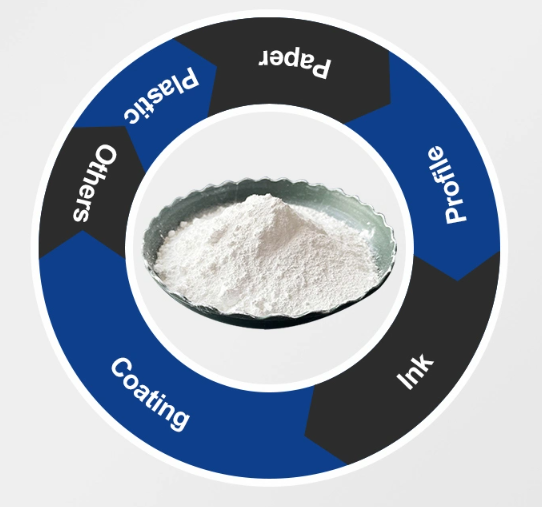
9 月 . 07, 2024 09:59 Back to list
Wholesale Coatings with Nano Titania - Superior Performance & Durability
The Role of Nano Titania in Wholesale Coatings
In recent years, the incorporation of nanomaterials in various industries has marked a significant evolution in product performance and functionality. One of the standout materials increasingly prominent in the wholesale coatings sector is nano titania (titanium dioxide, TiO2). Renowned for its unique properties, nano titania is revolutionizing the coatings industry, enhancing performance across a variety of applications.
Understanding Nano Titania
Nano titania is a nanoscale form of titanium dioxide characterized by its high surface area to volume ratio and unique optical and electronic properties. When reduced to nanoscale dimensions, titanium dioxide exhibits enhanced photocatalytic activity, increased UV absorption, and improved barrier properties. These advantages make nano titania a valuable additive in the formulations of coatings for a wide range of substrates, including metals, plastics, and wood.
Applications of Nano Titania in Coatings
The application of nano titania in coatings is multifaceted. One of its most critical roles lies in its ability to provide UV protection. Industries requiring outdoor durability, such as construction and automotive, benefit immensely from this property, as nano titania effectively absorbs harmful UV radiation and helps prevent degradation of the coating. This prolongs the life of the substrate and maintains aesthetic appeal.
Moreover, nano titania's photocatalytic properties are particularly beneficial for self-cleaning surfaces. When exposed to UV light, nano titania can break down organic pollutants, making surfaces easier to clean and maintain. This feature is especially useful in architectural coatings, where buildings are subjected to environmental pollution and require frequent cleaning. The self-cleaning effect not only reduces maintenance costs but also contributes to sustainability by minimizing the need for chemical cleaners.
Antimicrobial Properties
wholesale coatings used nano titania

Another significant advantage of nano titania in coatings is its antimicrobial activity. The photocatalytic effect generated by nano titania can deactivate bacteria and other pathogens on coated surfaces, making it an excellent choice for applications in healthcare and food industries. Coatings formulated with nano titania can inhibit the growth of harmful microorganisms, thereby enhancing hygiene and safety in sensitive environments.
Sustainability and Environmental Impact
The push towards greener technologies and sustainable materials has further accelerated the integration of nano titania in coatings. As a non-toxic and environmentally friendly substance, nano titania aligns well with the increasing demand for eco-friendly products. Its ability to enhance the durability of coatings also translates into less frequent reapplications and reduced material waste, which is a significant benefit for the environment.
Challenges and Future Perspectives
Despite its numerous advantages, the incorporation of nano titania in coatings is not without challenges. Concerns regarding the behavior of nanoparticles in various environments, including potential environmental and health risks, underscore the importance of responsible manufacturing and usage practices. Ongoing research and regulatory developments are essential to ensure that the benefits of nano titania can be maximized while minimizing associated risks.
Looking forward, the continuous innovation in additive manufacturing and nanomaterials will likely lead to even more specialized applications of nano titania in coatings. The increasing demand for advanced, high-performance coatings across various sectors—from industrial to residential—will ensure that nano titania remains a focal point in the evolution of the coatings industry.
Conclusion
In summary, nano titania is playing a pivotal role in transforming the wholesale coatings market. With its exceptional properties, including UV protection, photocatalytic activity, and antimicrobial effects, it enhances the performance and sustainability of coatings. As research progresses and innovations continue, nano titania will undoubtedly pave the way for the future of advanced coatings, contributing to more durable, efficient, and sustainable solutions in multiple industries.
-
Lithopone for Plastic & TiO2 R-5568/SK-6658 Masterbatch Solutions
NewsMay.30,2025
-
China Leading Rutile TiO2 Manufacturer - R5566 & R996 Grades Available
NewsMay.30,2025
-
High-Purity Anatase & Rutile TiO2 Powder Trusted Manufacturer
NewsMay.30,2025
-
High-Purity Anatase Products Trusted Supplier & Manufacturer
NewsMay.29,2025
-
Best Price Eco-Friendly Rutile TiO2 Supplier & Wholesale Factory
NewsMay.29,2025
-
Chinese Anatase Titanium Dioxide for Ceramic Glaze Reliable Supplier
NewsMay.29,2025
